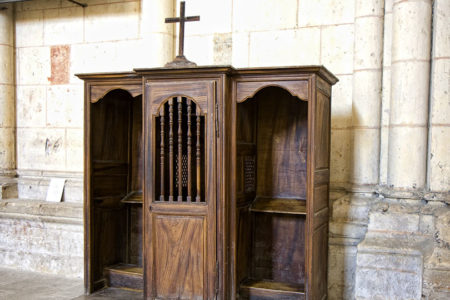God Is Exalted and Exclusive (Theology Proper)
Scripture teaches that Jehovah, the God of the Bible, is exalted above all gods and is the only real, true, and living God.
God Is Exalted
Israelites and Gentiles asserted that Israel’s God is exalted above all gods. Melchizedek, Gentile king of Salem and priest of God, called Abram’s God “the most high God” (Gen. 14:19–20). Abram spoke to the king of Sodom about “the LORD, the most high God” (Gen. 14:22). Moses told Pharaoh, “There is none like unto the LORD our God” (Ex. 8:10).
Jethro, Moses’ father-in-law, was so impressed with Jehovah’s deliverance of Israel from bondage in Egypt that he declared, “Now I know that the LORD is greater than all gods” (Ex. 18:11). David wrote, “Among the gods, there is none like unto thee, O Lord” (Ps. 86:8). King Solomon told Hiram, king of Tyre, “Great is our God above all gods” (2 Chr. 2:5). The Psalms claim, “The LORD is a great God, and a great King above all gods” (95:3); “the LORD . . . is to be feared above all gods. For all the gods of the nations are idols; but the LORD made the heavens” (96:4–5); the Lord is “exalted far above all gods” (97:9); “our Lord is above all gods” (135:5); and “Oh, give thanks unto the God of gods” (136:2).
After the prophet Daniel interpreted King Nebuchadnezzar’s dream, the king exclaimed, “Of a truth it is that your God is the God of gods” (Dan. 2:47). After God delivered Daniel’s friends from the fiery furnace, Nebuchadnezzar called Israel’s God “the Most High God” and declared, “There is no other God that can deliver after this sort” (Dan. 3:26, 29). Daniel referred to God as “the Most High God” (Dan. 5:18, 21).
Demon-possessed people also called God “the Most High God” (Mk. 5:7; Acts 16:17).
God Is Exclusive
The biblical claim that Jehovah is the only real God is based on several factors.
The Holiness of God
The holiness of God is His quality of being divided from everyone and everything else in the sense of being different, distinct, or unique. Hannah declared, “There is none holy like the LORD: for there is none beside thee” (1 Sam. 2:2). C. F. Keil and F. Delitzsch claimed the latter part of Hannah’s declaration “explains the reason given for His holiness, viz. ‘there is not one (a God) beside thee.’”1 None is holy or unique as Jehovah is because He is the only God who exists.
Moses and the children of Israel sang that no one else is holy or unique like Jehovah: “Who is like unto thee, O LORD, among the gods? Who is like thee, glorious in holiness . . . ?” (Ex. 15:11).
Tribulation saints will sing the song of Moses, “For thou only art holy,” and give the reason Jehovah is holy or unique in an exclusive sense: “for all nations shall come and worship before thee” (Rev. 15:4). The fact that all nations will come and worship Jehovah indicates that all nations will recognize that He is the only God who exists. Thus Jehovah is holy or unique in an exclusive sense because He is the only real God.
Assertions of One God
Assertions by God. God asserts that He is the only real God. He declares, “See now that I, even I, am he, and there is no god with me” (Dt. 32:39). Earl S. Kalland explained:
What was Israel to understand? That the Lord is God! This statement is made the more impassioned and emphatic by the repetition of the first personal pronoun, “I, even I” . . ., and the simple but profound assertion, “I am he” . . . an assertion of the reality and uniqueness of the Lord as God, readily seen in the line that follows, which asserts that no other God exists.2
God said to Israel, “I am he; before me there was no God formed, neither shall there be after me. I, even I, am the LORD, and beside me there is no savior” (Isa. 43:10–11). Edward J. Young wrote,
They are thus to perceive that He who speaks to them is the I AM, the one who is, the existing, true, actual God. The old gods of Israel’s period of idolatry must go, and Israel must know that Yahweh of hosts alone is the true God. Before Him there was no true God formed, nor will there be any other after Him. The word “formed” may cast some reflection upon the fact that the idols are formed by molding. The God of Israel, however, is superior to them, for He has no beginning nor ending.3
God also declared, “I am the first, and I am the last, and beside me there is no God” (Isa. 44:6); “I AM the LORD, and there is none else, there is no God beside me” (Isa. 45:5); “there is no God else beside me, a just God and a Savior; there is none beside me. Look unto me, and be saved, all the ends of the earth; for I am God, and there is none else” (Isa. 45:21–22).
Assertions by Others. Israelites and Gentiles asserted that Jehovah, Israel’s God, is the only real God. After hearing what Jehovah did for the Israelites at the Red Sea and in their conquest of the Amorites, Rahab, the Canaanite harlot, told the Israelite spies, “The LORD your God, he is God in heaven above, and in earth beneath” (Josh. 2:11).
David asserted that no one is God except Jehovah, asking rhetorically, ”For who is God, except the LORD?” (2 Sam. 22:32).
After God healed Naaman, captain of Syria’s army, of leprosy, Naaman declared, “Now I know that there is no God in all the earth, but in Israel; . . . thy servant will henceforth offer neither burnt offering nor sacrifice unto other gods, but unto the LORD” (2 Ki. 5:15, 17).
King Hezekiah prayed, “O LORD God of Israel, . . . thou art the God, even thou alone, of all the kingdoms of the earth; thou hast made heaven and earth” (2 Ki. 19:15). He asked God to save Jerusalem from Assyrian destruction, “that all the kingdoms of the earth may know that thou art the LORD God, even thou only” (2 Ki. 19:19).
A group of Levites, while addressing the God of Abraham, Moses, and Israel, declared,
Thou, even thou, art LORD alone; thou hast made heaven, the heaven of heavens, with all their host, the earth, and all things that are in it, the seas, and all that is in them, and thou preservest them all; and the host of heaven worshipeth thee (Neh. 9:6).
A scribe said to Jesus, “Thou hast said the truth; for there is one God, and there is no other but he” (Mk. 12:32).
The apostle Paul asserted, “Is he the God of the Jews only? Is he not also of the Gentiles? Yes, of the Gentiles also, Seeing it is one God, who shall justify the circumcision by faith, and uncircumcision through faith” (Rom. 3:29–30); “there is no other God but one” (1 Cor. 8:4); “God is one” (Gal. 3:20); and “there is one God” (1 Tim. 2:5).
James declared that people do well to believe “there is one God” and that demons believe there is one God and tremble (Jas. 2:19). Since demons were created as holy angels by God and existed in His presence until they rebelled and became evil, they know there is only one real God and that He has unlimited power. That knowledge causes them to tremble with fear.
Assertions of the True and Living God
Several persons asserted that Jehovah is the true God. The prophet Azariah indicated that, when Israel forsook Jehovah, Israel was “without the true God” (2 Chr. 15:3). The Hebrew word translated “true” “is used absolutely to denote a reality which is to be regarded as amen ‘firm,’ and therefore ‘solid,’ ‘valid,’ or ‘binding.’”4 Jesus called the Father “the only true God” (Jn. 17:3). The apostle John asserted that the Son of God, Jesus Christ, has given human beings understanding so that they might know the God “that is true” (1 Jn. 5:20). The Greek word translated “true” in Jesus’ and John’s statements is “used of God in the sense of ‘real’ or ‘true’ in contrast to the vanity of idols.”5
Several persons asserted that Jehovah is the living God. After seeing God’s glory at Mount Sinai and hearing Him speak, the Israelites said, “We have seen this day that God doth talk with man, and he liveth” (Dt. 5:24) and claimed that they “heard the voice of the living God” (v. 26).
Joshua told Israel, “Hereby ye shall know that the living God is among you” (Josh. 3:10). David declared that Goliath defied “the armies of the living God” (1 Sam. 17:26). King Hezekiah accused the king of Assyria of sending his spokesman “to reproach the living God” (2 Ki. 19:4). God foretold that the people of Israel would be called “the sons of the living God” (Hos. 1:10).
King Darius the Mede called Daniel “servant of the living God” (Dan. 6:20). After God delivered Daniel from the lions, Darius ordered the people of his kingdom to “tremble and fear before the God of Daniel; for he is the living God” (Dan. 6:26).
The apostle Peter called Jesus “the Son of the living God” (Mt. 16:16; Jn. 6:69). Caiaphas, the high priest, said, “I adjure thee by the living God” (Mt. 26:63). Paul and Barnabas exhorted the people of Lystra to turn from the vain worship of their false gods “unto the living God, who made heaven, and earth, and the sea, and all things that are in them” (Acts 14:15).
Paul referred to “the Spirit of the living God” (2 Cor. 3:3); called Christians “the temple of the living God” (2 Cor. 6:16); mentioned “the church of the living God” (1 Tim. 3:15); said, “We trust in the living God, who is the Savior of all men” (1 Tim. 4:10); and charged the rich to trust “in the living God,” not in uncertain riches (1 Tim. 6:17).
The writer of Hebrews warned his readers against “departing from the living God” (3:12), talked about serving “the living God” (9:14), asserted that “it is a fearful thing to fall into the hands of the living God” (10:31), and called the heavenly Jerusalem “the city of the living God” (12:22).
The apostle John saw “the seal of the living God” (Rev. 7:2).
God emphasized the reality of His existence by introducing many significant declarations with the expression as I live (Isa. 49:18; Jer. 22:24).
The prophet Jeremiah claimed that Jehovah “is the true God; he is the living God” (Jer. 10:10). The apostle Paul wrote about people who “turned to God from idols, to serve the living and true God” (1 Th. 1:9).
Conclusion
The Bible leaves no room for doubt concerning its view of God. It unequivocally asserts that Jehovah, the God revealed in its pages, the God who brought Israel and the church into existence, truly exists; is exalted above all other gods; and is the only real God.
ENDNOTES
- F. Keil and F. Delitzsch, Biblical Commentary on the Books of Samuel in Biblical Commentary on the Old Testament, Eerdmans, Grand Rapids, 1950, p. 31.
- Earl S. Kalland, “Deuteronomy,” The Expositor’s Bible Commentary, Vol. 3, Zondervan, Grand Rapids, 1992, p. 214.
- Edward J. Young, The Book of Isaiah, Vol. 3, Eerdmans, 1972, p. 149.
- Gottfried Quell, “emeth,” Theological Dictionary of the New Testament, Vol. I, Eerdmans, Grand Rapids, 1964, p. 232.
- Rudolf Bultmann, “alethinos,” Theological Dictionary of the New Testament, Vol. I, Eerdmans, Grand Rapids, 1964, p. 249.







